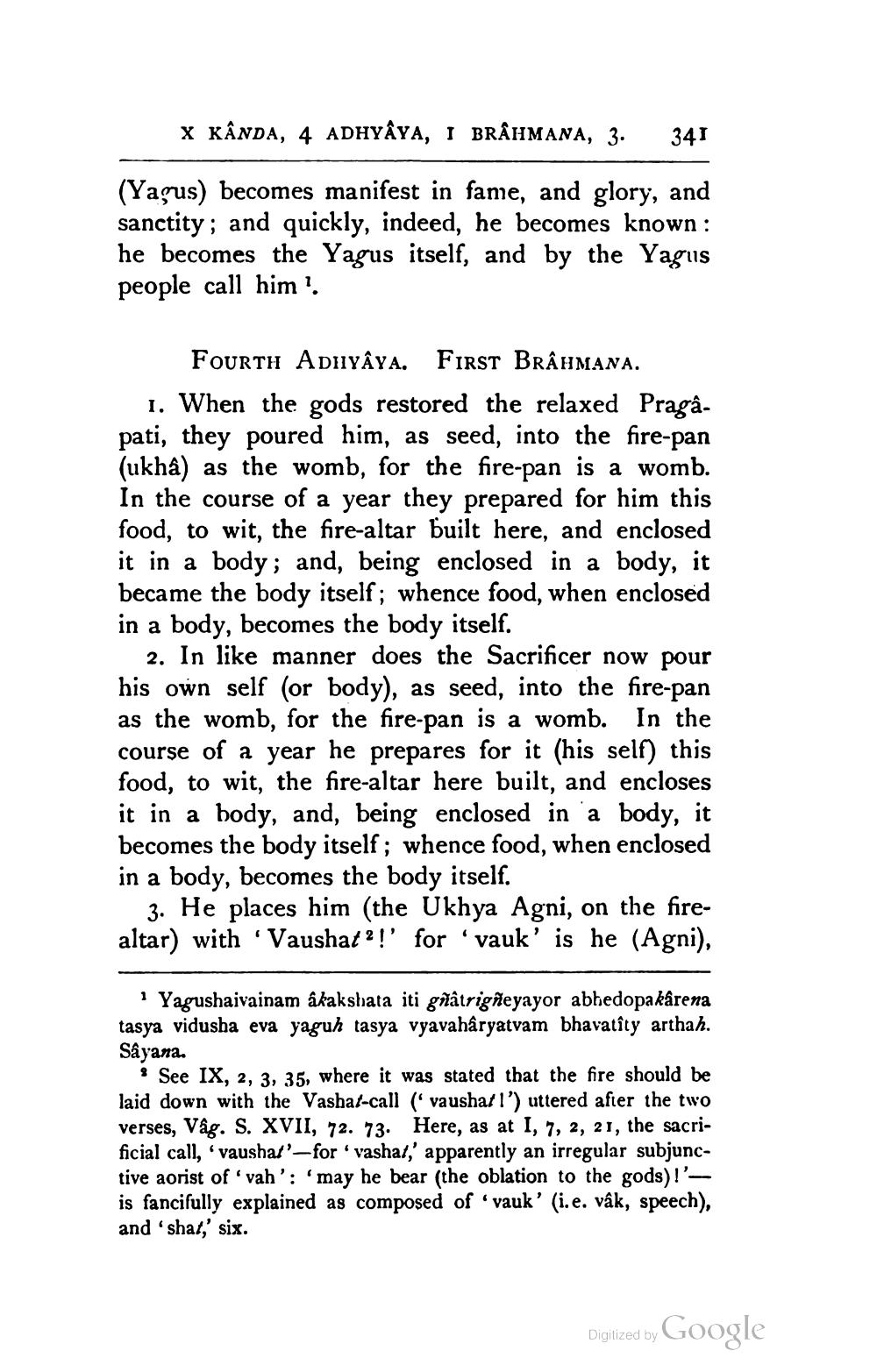________________
X KÂNDA, 4 ADHYAYA, I BRÂHMANA, 3.
341
(Yaçus) becomes manifest in fame, and glory, and sanctity; and quickly, indeed, he becomes known: he becomes the Yagus itself, and by the Yagis people call him?
Fourth Adhyâya. First BRÂHMANA. 1. When the gods restored the relaxed Pragapati, they poured him, as seed, into the fire-pan (ukhâ) as the womb, for the fire-pan is a womb. In the course of a year they prepared for him this food, to wit, the fire-altar built here, and enclosed it in a body; and, being enclosed in a body, it became the body itself; whence food, when enclosed in a body, becomes the body itself.
2. In like manner does the Sacrificer now pour his own self (or body), as seed, into the fire-pan as the womb, for the fire-pan is a womb. In the course of a year he prepares for it (his self) this food, to wit, the fire-altar here built, and encloses it in a body, and, being enclosed in a body, it becomes the body itself; whence food, when enclosed in a body, becomes the body itself.
3. He places him (the Ukhya Agni, on the firealtar) with Vaushat?!' for 'vauk' is he (Agni),
1 Yagushaivainam akakshata iti gñatrigñeyayor abhedopa karena tasya vidusha eva yaguh tasya vyavaharyatvam bhavatîty arthah. Sayana.
See IX, 2, 3, 35, where it was stated that the fire should be laid down with the Vashat-call (vaushall') uttered after the two verses, Våg. S. XVII, 72. 73. Here, as at I, 7, 2, 21, the sacrificial call, vaushal'- for 'vashat,' apparently an irregular subjunctive aorist of vah': 'may he bear (the oblation to the gods)!'is fancifully explained as composed of 'vauk' (i.e. vâk, speech), and 'shat,' six.
Digitized by Google




